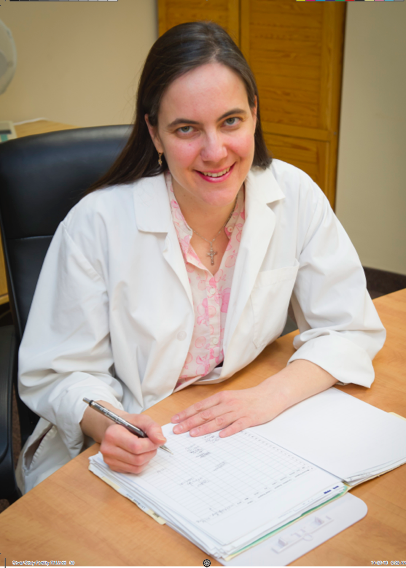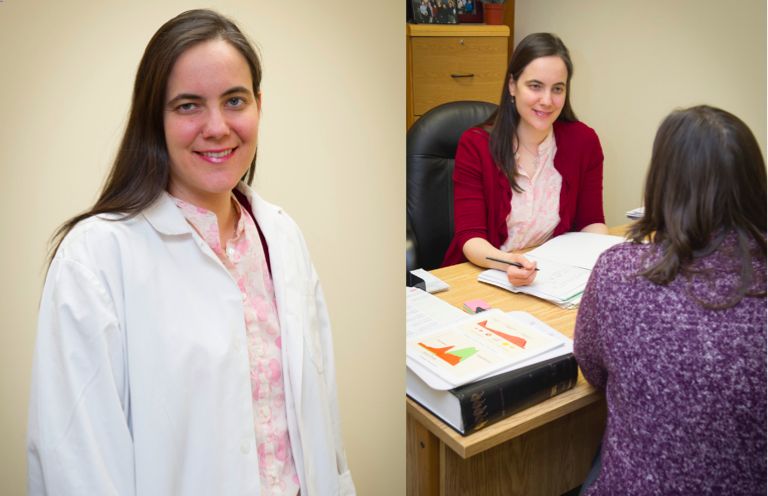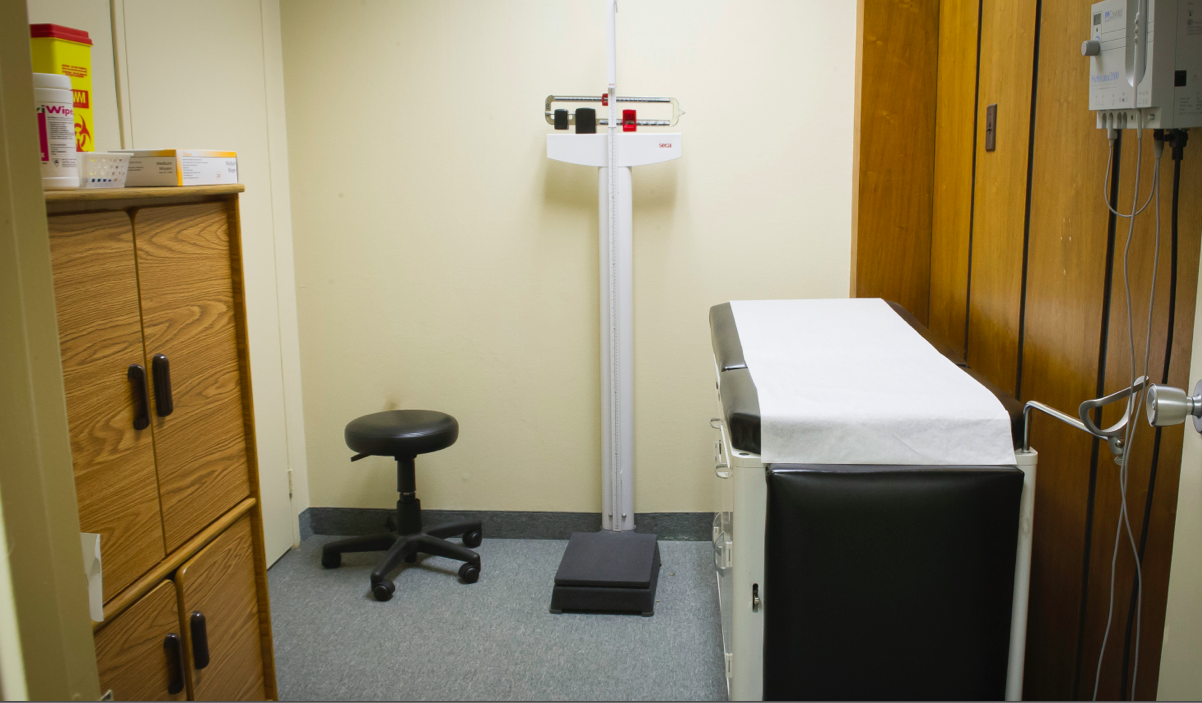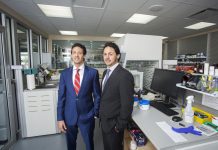A Restorative Approach To Women’s Health
FertilityCare Toronto is a holistic- minded women’s health center with the goal of restoring couples’ fertility, as naturally as possible and in harmony with the natural cycles of a woman’s body. Located at Coxwell and Danforth in downtown Toronto, the center’s services are delivered by a diverse, interdisciplinary team of health practitioners specially trained in the medical applications of the FertilityCare System, a standardized method of fertility awareness-based natural family planning, and NaPro Technology (natural procreative technology). Practitioners affiliated with the center include medical doctors, naturopathic doctors, a registered nurse, and lay practitioners with advanced training in guiding women in the FertilityCare System and NaPro Technology. NaProTechnology is a scientifically-based and well-researched reproductive health care service that cooperates with and restores reproductive function. The FertilityCare System of charting biomarkers provides the basis for the evaluation and treatment of women’s reproductive health by the NaProTechnology approach. FertilityCare Toronto provides services to women seeking alternatives for the treatment of concerns ranging from PMS, dysmenorrhea, irregular menstrual cycles, pregnancy care and post-partum issues including post-partum depression, as well as infertility; however approximately 50% of patients visit the center with fertility-related concerns.
For readers who may not be familiar with the system, the FertilityCare System consists of tracking and classifying specific biomarkers of fertility, namely the presence and qualities of cervical mucus, in a precise, systematic manner. These biomarkers are used to give an indication of changing estrogen and progesterone levels, as well as the timing and quality of ovulation. For example, the presence of spotting or brown bleeding can indicate a progesterone deficiency. Characteristics of cervical mucus that are collected include the sensation of mucus, colour, consistency, and length of stretch. An absence or low production of cervical mucus may indicate low estrogen levels and/ or problems with ovulation. The last day that cervical mucus is present during the cycle is termed “peak day,” and is used to estimate the time of ovulation. Ovulation has been shown to occur within 36 hours of “peak” in 95% of women.
- Photos: The hardworking women of the FertilityCare Toronto centre.
In addition to systematic data collection, the FertilityCare System uses a standardized method for the classification and interpretation of this data, with a view to medical applications. The FertilityCare System was developed over the last thirty years by Dr Thomas Hilgers MD, an obstetrician based out of Creighton University in Nebraska. Dr Hilgers studied the correlation of biomarkers with objective hormone changes in a woman’s body, identifying specific disturbances and/ or deficiencies present in particular pathologies such as endometriosis and polycystic ovarian syndrome (POCS). The FertilityCare system of charting biomarkers provides the foundation for the application of NaPro Technology, an advanced medical system of fertility care that restores reproductive function. For instance, Dr Hilgers identified at least four different patterns or types of luteal phase deficiency, and established his own reference ranges for optimal estradiol and progesterone levels, which are now used by NaPro- trained physicians worldwide. Dr Hilgers established the concept of an integrated hormone profile to assess estrogen and progesterone levels over the course of the cycle, with measurement periodically or every second day of the follicular and luteal phases to assess serum estradiol and progesterone, rather than relying on a single day 22 progesterone measurement. Such a strategy allows for a more accurate assessment of hormone areas under the curve (AUC) during the entire luteal (or follicular) phase. Dr Hilgers advocated the correction of hormone disturbances relying as much as possible on bioidentical hormones such as progesterone, hCG, and estradiol.
Recently, IHP had the privilege of speaking with several members of the Toronto-based team. Dr Julia Cataudella MD, CCFP, FCP, FCMC is a medical doctor based out of the center. As a graduate of Queen’s University School of Medicine, and the University of Toronto with a specialty in Family Medicine, Dr Cataudella sees the the FertilityCare System and NaPro Technology as a tool to truly understand and solve women’s health concerns without suppressing the body’s normal function and hormone physiology. Dr Cataudella is also a member of the International Institute of Restorative Reproductive Medicine (iirrm.org), a network of health care professionals and researchers who are committed to this restorative approach. Dr Cataudella emphasizes the restorative nature of the FertilityCare System as a method of “cooperatively restoring a woman’s fertility and/ or menstrual cycle.” Application of the FertilityCare System) can restore feedback in hormone systems, thereby correcting the underlying problems affecting women’s health, without resorting to suppressive treatments such as the oral contraceptive pill (OCP). Targeted use of bioidentical hormones in sync with a woman’s cycle corrects disturbances in a way that respects the body and safeguards fertility. Dr. Cataudella emphasizes that timing of hormone administration is key in achieving outcomes, and analysis of the woman’s chart is used the help determine this. The FertilityCare System system is a proactive approach, and while it requires women to invest some time in learning the charting method, the end result is women feeling empowered, dignified, and in control of their fertility. This system can also be applied to a range of other women’s health issues as well, ranging from PMS, to irregular cycles, to endometriosis and PCOS.
In her system of practice, Dr Cataudella embodies a holistic philosophy, cognizant of treating the whole person and addressing the underlying cause of disease. She eloquently describes some of the common strategies used in the conventional approach to women’s health as suppressive and near-sighted. A common example includes prescription of the OCP as a panacea for concerns ranging from teen-PMS and acne to irregular cycles and dysmenorrhea. Such a strategy shuts down the hypothalamus- pituitary-ovary (HPO) axis, suppresses ovulation, and inhibits normal production of estrogen and progesterone, while failing to address the true cause of illness. Dr Cataudella is also critical of the long-term effects of such a strategy with respect to metabolic disturbances, cardiovascular risk including blood clots, and risk of carcinogenesis. Similarly, the conventional approach to the treatment of infertility tends to rely heavily on drugs and invasive techniques that override the woman’s own body and reproductive system, while ignoring potential long-term effects on disease risk.
In keeping with her holistic approach, Dr Cataudella complements her practice of NaPro Technology with a developed interest in natural agents. She incorporates a variety of natural strategies in her recommendations to patients, including specific dietary advice and prescription of select natural health products. She recommends a low glycemic diet higher in protein for patients with PCOS, as well as a hypoallergenic diet (gluten and/ or dairy free) as well as the GAPS diet (Gut and Psychology Syndrome diet) to address the autoimmune components of endometriosis and/ or PCOS. Supplements that may be recommended to patients include inositol, chromium, chaste tree berry, biotin, and vitamin D. For men, Dr Cataudella may recommend coenzyme Q10, alpha lipoic acid, L-carnitine, and N-acetylcysteine to enhance sperm parameters. Another more novel, innovative therapy that is being increasingly utilized by NaPro- trained physicians in the treatment of conditions such as PCOS and endometriosis is Low Dose Naltrexone (LDN), a therapy that is also commonly used by naturopathic doctors in the treatment of cancer. Administration of a low, short-acting bedtime dose of naltrexone boosts early morning (rebound) endorphin production and/ or receptivity. This increase in baseline endorphin activity has been shown to support normal immune and endocrine function in conditions such as endometriosis. High dose, daytime naltrexone (50mg) may also be used to treat conditions associated with excess opioid tone, which may inhibit ovulation. In addition, Dr Cataudella cross-refers many patients with a naturopathic doctor affiliated with the center, Dr Nora Pope, ND.
Dr Pope has been involved with the center for over twenty years, first as a volunteer and organizational leader, and later as a charting instructor, practitioner, and naturopathic doctor. Dr Pope referred her first patient to Dr Cataudella as a result of epilepsy that followed a cyclical pattern, indicating hormonal involvement and a possible role for progesterone therapy. Since then, they have shared many patients. Dr Pope has also completed advanced training in NaPro Technology, travelling to the United States to complete her training as a Medical Consultant Auditor at Dr. Hilgers’ center. Dr Pope uses her naturopathic tools, including botanicals, nutrients, classical homeopathy, and acupuncture, to enhance the specific effects of NaPro Technology with respect to hormones and the reproductive system, as well as to enhance patients’ overall health status that may be interfering with their reproductive function.
In addition, other members of the team include Karen Hemingway CFCS, Executive Director; Margaret Smith, RN, CFCE, Education Program Director; Sylvia Heald, BEd, CFCP; Vania Branker MSc, FCP; Denise Chun, BEd, CFCP; Laura Ostoya FCP; and Natalie Mahon, BEd, FCPI. Affiliated with the center but practicing independently are two other medical doctors trained in NaPro Technology: Dr Elizabeth Tham MD, CCFP, FCFP, CFCMC and Dr Maria Wolfs MD, FRCPC, NFPMC. Dr Tham has a family practice with a focus on NaPro Technology located in Etobicoke, while Dr Wolfs is an endocrinologist at St. Michael’s Hospital in Toronto. Dr Tham has an active research interest, and has published work on the effectiveness of NaPro Technology in the Canadian Family Physician (Tham 2012).
In brief, Tham et al analyzed data from a cohort of 108 couples receiving care using NaPro Technology. Baseline characteristics of the cohort were that 18% had reported having two or more previously unexplained miscarriages. The average female age was 35.4 years, and couples had been attempting to conceive for a mean of 3.2 years. Results showed that the cumulative adjusted proportion of first live births for those completing up to 24 months of NaPro treatment was 66 per 100 couples. The cumulative adjusted proportion of first conceptions was 73 per 100 couples. Of the 51 couples who conceived, 12 couples (24%) conceived with Creighton model charting instruction alone, 35 (69%) conceived with charting plus NaPro medical treatment, and 4 (8%) conceived after additional surgical treatment. There are also NaPro researchers based out of the United States, Ireland, Africa, and Australia. NaPro researchers are connected through membership in the International Institute of Restorative Reproductive Medicine (IIRRM). For more information, please visit iirrm.org.
We congratulate FertilityCare Toronto on their work and dedication to making NaPro services available to women here in Canada.
References
FertilityCare.net. New Treatment Strategies. Low Dose Naltrexone. Patient Information. URL: http://www.fertilitycare.net/documents/ LDNInfoAug13aa.pdf Accessed 29 January 2014.
Tham E, Schliep K, Stanford J. Natural procreative technology for infertility and recurrent miscarriage: outcomes in a Canadian family practice. Can Fam Physician. 2012 May;58(5):e267-74.













